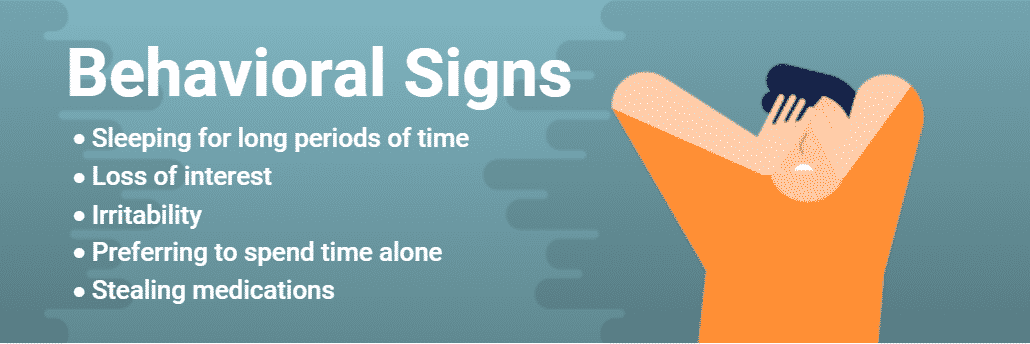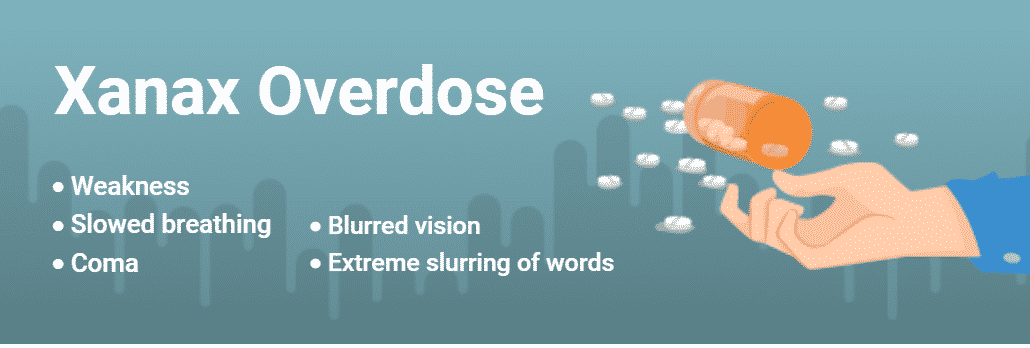We are reviewing some warning signs that may indicate Xanax use, including negative side effects, symptoms and how to know if someone is abusing Xanax.
You may have heard of Xanax or possibly even taken it yourself for anxiety. If not, you likely know someone close to you who has taken Xanax at one point or another. But, how can you tell when someone is on Xanax? How do you know when Xanax use has become a problem? Are there signs someone is abusing Xanax, and if so, how can you recognize them?
These are all common questions and concerns people have, particularly with how pervasive prescribed and illicit Xanax use has become. There are tens of millions of prescriptions written for Xanax written each year.
What Is Xanax?
Xanaxis the brand name of a drug called alprazolam, which isused to treatanxiety and panic disorders. This medication belongs to a broader class of drugs calledbenzodiazepines, frequently just referred to as “benzos.” Xanax is considered a potent benzo, and it’s taken as a tablet or an extended-release capsule.
Xanax impacts the brainand central nervous system to create a sense of calm. It does this by increasing the effects of GABA, a chemical found naturally in our bodies.
It’sthe most prescribed benzodiazepinein the U.S., and it’s prescribed at a much higher rate than similar drugs like Ativan and Klonopin.This drug absolutely has the potential forabuse and addiction, so people often wonder what signs to look for in someone on Xanax.
Common Side Effects of Xanax Use
Even if a doctor prescribes you to take Xanax, some negative side effects may occur. These common side effects aren’t necessarily always signs of abuse; they may occur with any use of this drug. Regardless of the reason someone takes Xanax, the effectsusually start to occurwithin about an hour and last for at least six hours.

Common Signs of Xanax Addiction
So, what if you’re wondering whether or not someone is not just on Xanax but abusing it? Themore Xanax a person takes, the more likely they are to experience signs of abuse. Common signs of Xanax addiction that are visible to observers include trouble with cognition and forming words properly. People who are on Xanax will often sound similar to someone who is intoxicated from alcohol because of slurring.
Behavioral Signs

Psychological Signs

Overdose Signs
When someone takes high doses of Xanax or is regularly abusing the drug, they may have mental problems, including aggression, hostility, depression or thoughts of suicide or hurting themselves. Also possible are chest pains, involuntary muscle movements, hallucinations and even seizures.

Xanax overdose is also possible when someonetakes too muchor takes it too frequently in a short time. Physical signs that someone is on Xanax and experiencing an overdose can include blurred vision, extreme slurring, weakness, slowed breathing and possibly, in severe cases, coma.
If someone istaking Xanax and drinking, the likelihood of an overdose becomes higher.
Other Signs of Being on Xanax
If you’re concerned someone might be on Xanax, especially if they’re using it without a prescription or they’re abusing, there can be red flags, like seeing pill bottles lying around (even if they’re not labeled as the drug). Xanax itself is apill shaped like a bar. There are generic versions that are green or yellow, while the brand Xanax is white in color.
One of the tricky things about recognizing the signs of a Xanax addiction is its role as a prescription drug. People taking it tend tosee it as safe: they feel like their doctor told them to take it; therefore, it’s not a problem. While it may have started this way, gaining a tolerance to this prescription can lead to Xanax abuse, addiction andoverdose.
If you see signs of a Xanax addiction in yourself or a loved one, The Recovery Village can help.Contact ustoday to discuss how our addiction specialists can help you treat a Xanax use disorder and co-occurring mental health disorder with healthier solutions that meet your needs.
One of the tricky things about recognizing the signs of a Xanax addiction is its role as a prescription drug. People taking it tend tosee it as safe: they feel like their doctor told them to take it; therefore, it’s not a problem. While it may have started this way, gaining a tolerance to this prescription can lead to Xanax abuse, addiction andoverdose.
If you see signs of a Xanax addiction in yourself or a loved one, The Recovery Village can help.Contact ustoday to discuss how our addiction specialists can help you treat a Xanax use disorder and co-occurring mental health disorder with healthier solutions that meet your needs.
















